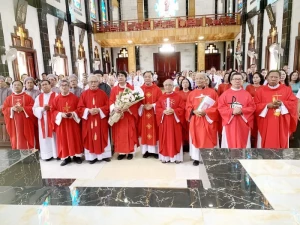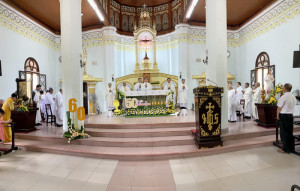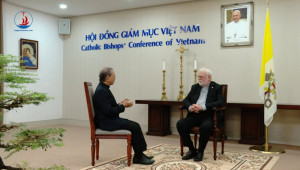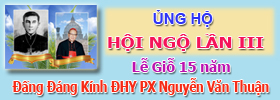Phó thủ tướng Đức: "Tôi từng mơ là hoàng tử Việt Nam"

Báo Der Spiegel của Đức vừa có cuộc trò chuyện khá cởi mở với Phó thủ tướng Đức kiêm Bộ trưởng Kinh tế Philipp Rösler. Cuộc trò chuyện tập trung vào vấn đề nguồn gốc Việt Nam của ông cũng như sự hòa nhập vào nước Đức.
Phó thủ tướng Đức: "Tôi từng mơ là hoàng tử Việt Nam"
Báo Der Spiegel của Đức vừa có cuộc trò chuyện khá cởi mở với Phó thủ tướng Đức kiêm Bộ trưởng Kinh tế Philipp Rösler. Cuộc trò chuyện tập trung vào vấn đề nguồn gốc Việt Nam của ông cũng như sự hòa nhập vào nước Đức.

Ảnh: Der Spiegel
* Bộ trưởng Philipp Rösler, ông là người Việt Nam và được cha mẹ Đức nhận làm con lúc 9 tháng tuổi. Vậy lúc nào ông nhận ra mình không giống những người Đức khác?
- Khi tôi bốn hay năm tuổi, ba tôi đặt tôi trước gương cùng ông ấy. Ông nói: "Hãy nhìn con, rồi nhìn ba - con với ba khác nhau. Nhưng dù cho điều gì xảy ra hay người ta nói cái gì thì ba là ba của con".
* Lúc nhỏ có bao giờ ông bị bạn bè chọc vì vẻ bề ngoài?
- Chưa bao giờ. Tôi từng mơ mình là một hoàng tử Việt Nam bị lạc. Và có đôi lúc tôi hỏi ba ở Việt Nam có hoàng tử không. Vào những năm 1980, ba tôi trả lời rằng Việt Nam đã từng có vương triều nhưng bây giờ không còn nữa.
* Với bề ngoài của mình, từ khi còn thiếu niên có bao giờ ông nghĩ mình sẽ trở thành Phó thủ tướng?
- Một thiếu niên có thể tưởng tượng sẽ trở thành phó thủ tướng? Tôi cảm thấy người Đức chấp nhận sự thật rằng tôi không giống "một người Đức bình thường". Lâu nay, điều này vẫn luôn xảy ra.

Ảnh: Der Spiegel
* Người Việt Nam có tự hào với Philipp Rösler?
- Những tour du lịch Việt Nam thường dừng ở văn phòng của tôi và với nhiều người Việt Nam, điều đó thật đặc biệt. Nếu một người con nuôi Đức được làm trong chính phủ Việt Nam thì bản thân người Đức cũng cảm thấy rất thích thú.
* Ba ông có nói nhiều về Việt Nam?
- Trong thời gian làm phi công cho quân lực Đức, cha tôi đã gặp nhiều người Việt Nam. Trong những năm 1970, ông thường sang Mỹ tập huấn và gặp những người Việt Nam được tập huấn ở đây. Chiến tranh Việt Nam đã ảnh hưởng nhiều đến ông, cũng như đa số những người thuộc thế hệ này. Lúc đó ông chỉ có hai lựa chọn, hoặc xuống đường biểu tình phản đối hoặc giúp đỡ một cách thiết thực nhất. Ông đã chọn cách thứ hai, nhận một đứa con nuôi Việt Nam - đó là tôi.
* Có bao giờ ông ước được giống một người Đức?
- Không, bởi vì tôi là người Đức và luôn cảm thấy mình là người Đức. Tôi đi học trường tiểu học công giáo ở Hamburg, nơi có nhiều học sinh từ Ý và Tây Ban Nha. Sau ngày đi học đầu tiên, tôi nói với ba: "Ba, ở lớp con có nhiều học sinh nước ngoài". Và ông đã cười rất lớn.

Thủ tướng Đức Angela Merkel và phó thủ tướng Philipp Rösler - Ảnh: Der Spiegel
* Là một bộ trưởng kinh tế, ông có làm việc theo hướng nới lỏng luật nhập cư vào Đức?
- Tôi chủ trương nước Đức đi theo hướng này. Nước Đức cần những người nhập cư có chất lượng. Thật nực cười khi Đức bỏ công sức, tiền bạc để đào tạo những sinh viên nước ngoài nhưng chỉ cho phép ở lại Đức một năm sau khi tốt nghiệp.
* Có bao giờ ông gặp khó khăn trong sự nghiệp chính trị vì người ta thường nghĩ dân châu Á hiền và thân thiện?
- Tại sao thân thiện lại có thể là một trở ngại?
* Tại sao phải đợi đến năm 33 tuổi ông mới lần đầu tiên trở về Việt Nam?
- Tôi đi bởi vì vợ nói với tôi: "Chúng ta rồi sẽ có con và em muốn có thể kể cho chúng nghe về đất nước nơi anh đã sinh ra".
* Cảm xúc của ông khi đó? Giống như một du khách bình thường?
- Có lẽ giống một du khách đặc biệt thích thú. Những người tôi tiếp xúc cho rằng tôi không sinh ra và lớn lên ở Việt Nam và hầu hết đều nghĩ rằng tôi là Việt kiều Mỹ về thăm quê.

Phó thủ tướng Philipp Rösler cùng vợ và hai con gái sinh đôi - Ảnh: Der Spiegel
* Ông có biết gì về cha mẹ ruột của mình?
- Không. Các sơ phải chăm đến hơn 3.000 trẻ. Họ đã phải tự nghĩ ra tên và dòng họ của ngần ấy đứa trẻ để điền vào các phiếu. Vì vậy tôi không biết bất cứ điều gì về cha mẹ ruột của mình.

Ảnh: Der Spiegel
* Ông thích nhất ở Việt Nam điều gì?
- Cảnh đẹp và thức ăn. Khi bạn ăn nhà hàng châu Á ở Đức, nó đã bị Đức hóa. Nhiều người châu Á thậm chí không đi ăn nhà hàng châu Á vì hương vị của nó không giống ở quê nhà.
* Tại sao ông lại muốn là một người Đức hơn những người Đức?
- Tôi không như vậy. Đơn cử như việc đã từ lâu tôi không có cờ Đức trong văn phòng của mình.
* Như là việc ông thích ca sĩ Đức Udo Jürgens. Ông đặt tên hai con gái là Grietje và Gesche. Ông là thành viên của Ủy ban trung ương công giáo Đức... Ông còn hơn một người Đức, ông là người Đức mẫu mực.
- Để tôi nói lại: Tôi đúng là fan của Jürgens nhưng chắc chắn không phải vì anh ta hát tiếng Đức. Và để tôi nói thêm vài bí mật - ở nhà chúng tôi không treo cờ Đức. Xe hơi riêng của tôi là một chiếc xe Pháp đơn giản là vì nó là chiếc duy nhất nó đủ chỗ để chở nôi cho hai đứa song sinh. Về tên của chúng, do vợ tôi đã đổi họ Rösler theo tôi nên cô ấy sẽ là người chọn tên cho con. Và thật ra thì cái tên Grietje nghe có vẻ Hà Lan còn Gesche nghe có vẻ frisia (một ngôn ngữ sử dụng thông dụng ở nhiều vùng tại Hà Lan và Đức) hơn.

Ảnh: Der Spiegel
* Bộ trưởng Philipp Rösler, cám ơn ông về cuộc phỏng vấn này.
Đ.K.L. lược dịch. Nguồn: tuoitre online
Bài đầy đủ bằng tiếng Anh:
SPIEGEL Interview with Economics Minister Rösler
'I Used to Dream I Was a Vietnamese Prince'
Christian Thiel/ DER SPIEGEL
German Economics Minister Philipp Rösler, who was adopted into a German family from Vietnam at a young age, insists that he never had problems because of his background. He spoke with SPIEGEL about integration, discrimination and what it means to be German.
For reasons of data protection and privacy, your IP address will only be stored if you are a registered user of Facebook and you are currently logged in to the service. For more detailed information, please click on the "i" symbol.
SPIEGEL: Minister Rösler, you were born in Vietnam and adopted by German parents when you were nine months old. When was the first time you noticed that you looked different from other German children?
Rösler: When I was four or five, my father put me in front of a mirror together with him. He said: "Look at yourself, then look at me -- we look different. But no matter what happens and no matter what people say: I'm your father."
SPIEGEL: Were you teased as a child for the way you looked?
Rösler: No, never. I sometimes used to dream I was a lost Vietnamese prince. The idea appealed to me. At some point I asked my father whether there even were princes in Vietnam. He said there used to be an emperor there, but not anymore. This must have been around 1980, when the Communists were already in power.
SPIEGEL: Given your appearance, could you as a teenager imagine one day becoming vice chancellor of Germany?
Rösler: What teenager can ever imagine becoming vice chancellor? I find that German citizens have been very tolerant and accepting about the fact that I look different from an "average German." Abroad, it does draw attention now and then. I recently accompanied the chancellor to Washington and when we were received at the White House, President Obama was curious about my political career.
SPIEGEL: Was there a reaction from Vietnam when you became chairman of the Free Democratic Party (FDP) -- junior coalition partner to Chancellor Angela Merkel's conservatives -- and vice chancellor of Germany?
Rösler: I received congratulations from many governments, including Vietnam, which made me very happy. But no connection was drawn to my Vietnamese background.
SPIEGEL: Are people in Vietnam proud of Philipp Rösler?
Rösler: Vietnamese tour buses often stop at my ministry, and for many Vietnamese people it's certainly something special. If someone adopted from Germany were part of the Vietnamese government, we Germans would probably find that interesting too.
SPIEGEL: Did your father tell you much about Vietnam?
Rösler: My father met a number of Vietnamese people in his job as a helicopter pilot with the German armed forces. In the 1970s, he often went to the US for training, where pilots in the South Vietnamese Army also trained. The war in Vietnam occupied him enormously, as it did most of his generation. He saw two options back then -- either take to the streets and protest, or help in a very practical way. He chose the second option and adopted a child from Vietnam -- me.
SPIEGEL: Now, when you watch movies about the Vietnam War, which side are you on?
Rösler: No side at all. In movies such as "Platoon" by Oliver Stone, there isn't necessarily a clear division into good and bad, so I don't feel forced to take a side.
SPIEGEL: Have you ever tried to learn Vietnamese?
Rösler: No, I've never had reason to do so.
SPIEGEL: Did you ever wish to look like a German?
Rösler: No, because I am a German and I have always felt like a German. I went to a Catholic elementary school in the Harburg district of Hamburg, where there were a lot of Spanish and Italian students. After my first day of school, I went to my father and said, "Dad, there are lots of foreigners in my class." He laughed out loud.
SPIEGEL: Is Germany as a country friendly to foreigners?
Rösler: Yes, it is. I myself have never had negative experiences.
SPIEGEL: Which groups of foreigners would you say have the hardest time in Germany?
Rösler: That's difficult to say. In general, foreignness and differentness scare a lot of people. So I imagine the people who have it the hardest are the ones who are visually the most different from a "typical German."
SPIEGEL: Does your positive view of Germany also have something to do with the fact that you grew up in a sheltered environment? A Turkish boy in a difficult neighborhood in Berlin's Neukölln district, for example, likely has a very different perspective on Germany.
Rösler: No one has ever made fun of my heritage. But Turkish boys often had their noses rubbed in the fact that they were different. I found it unfair and dangerous. How is someone supposed to become part of society when he or she is told from the beginning, "You're not really a part of us"?
SPIEGEL: Why has the climate for foreigners in Germany grown harsher?
Rösler: In the past, foreigners were seen as an enrichment for the country. West Germany needed workers, so Spaniards, Italians and Turks were welcome. As the fear of unemployment grew, so did many people's fear that immigrants might take away their jobs. In the last few years, though, the climate has gotten considerably better.
SPIEGEL: And why is it that neo-Nazis in eastern Germany call Vietnamese people "Fijians" as a form of insult?
Rösler: Calling Vietnamese people Fijian is completely absurd, geographically for one thing. The Fiji Islands are thousands of kilometers away from Vietnam.
SPIEGEL: Can you understand that people are afraid of immigrants?
Rösler: There are always two ways to deal with these kinds of fears. Either you give in to the fears and close yourself off, or you try to be open and to enlighten people. I see this second as the liberal way.
SPIEGEL: Has your FDP done enough to enlighten people?
Rösler: Politics as a whole has done too little to address the subject of integration.
SPIEGEL: Have German policies been too indulgent with foreigners who refused to integrate?
Rösler: My belief is that our policies have offered too little, in terms of language courses for example. Punishment shouldn't be our first response.
SPIEGEL: As economics minister, do you plan to ease the rules on immigration to Germany?
Rösler: I will advocate for Germany moving further in this direction. Germany needs qualified immigrants and it's absurd for us to spend so much money educating foreign students and then, after they graduate, only allow them to stay in the country for one year.
SPIEGEL: In Germany, Asians are considered especially well integrated. Why is that?
Rösler: Vietnamese parents, like many others, place value on their children getting a good education.
SPIEGEL: Do you yourself run into problems in politics because of the reputation that Asians are always nice and friendly?
Rösler: Why would it be a problem to be seen as friendly?
SPIEGEL: Because friendliness, in politics, is often taken as an inability to be assertive.
Rösler: You don't need to worry about me there.
SPIEGEL: Finance Minister Wolfgang Schäuble said in an interview that you are not only knowledgeable and likeable, but also have a great deal of humor. Did you feel Schäuble was belittling you?
Rösler: I did ask myself what the benefit of his comments was.
SPIEGEL: Are you proud to be a German?
Rösler: Actually, I am, but this sentence has been taken over by right-wing radicals. There's no need to overuse it.
SPIEGEL: Does Islam belong in Germany?
Rösler: There are around 4 million Muslims in the country and they too help to shape it, so yes, it's also correct to say that Islam belongs in Germany. That statement originated with Federal President Christian Wulff. When he said that, I sent him a text message right away: "That was courageous. This is going to make waves." And that's exactly what happened.
SPIEGEL: Why did you wait until you were 33 to visit Vietnam, your country of origin, for the first time?
Rösler: I'd simply never had a desire to go, because Vietnam didn't have any special significance for me. If you're not lacking anything, then you don't go looking for something. In the end, I went because my wife said to me: "We want to have children someday, and I'd like to be able to tell them what the country where you were born looks like."
SPIEGEL: How did you feel when you were there? Like any ordinary tourist?
Rösler: Perhaps like an especially interested tourist. It was sometimes clear that people there were wondering just what kind of person I was. They could tell that I didn't live in Vietnam. But I also didn't particularly look like one of the many Japanese tourists who go there. Most people thought I was an American on vacation, someone from one of the families that emigrated to the US.
SPIEGEL: Did you know details about your Vietnamese roots at that point?
Rösler: Yes, and I partly have SPIEGEL to thank for that. A man at an event in the town of Holzminden asked me where exactly I came from. I told him the name of the village where I was born, which I knew from my birth certificate. The man said that was quite a coincidence, because his daughter came from the same place. She was one of the children evacuated from Vietnam during the war, in 1975. One of the last planes out crashed and partially burned in a rice field. SPIEGEL later took a trip there with the surviving children -- and that was the city where my orphanage was. The SPIEGEL article also quoted both of the nuns who took care of a total of 3,000 orphans during that time. They thought up names for their charges, in order to be able to send them abroad.
SPIEGEL: Did you never look at maps of Vietnam to find out where exactly your birthplace was?
Rösler: I did, but I was never able to find it on the maps I had. When I was in Vietnam in 2006, I went to the former South Vietnamese presidential palace. The American war rooms had been in the basement there and there were still old maps on the walls, so I looked for my birthplace on them. I knew it must be somewhere near Saigon, and eventually I found it. Our interpreter then explained that after the war, all villages and cities in South Vietnam were given different names. No wonder I had never been able to find the place before.
SPIEGEL: Did you and your wife then travel there?
Rösler: No, because our tour group was continuing on in a different direction. And honestly, I didn't need to. I had a rough idea what my village must have looked like. Essentially, Vietnamese villages don't look all that different from one another.
SPIEGEL: Do you know anything about your birth parents?
Rösler: No. The nuns at my orphanage had to take care of more than 3,000 children. They had to make up names and ancestry for the children in order to fill out their exit forms. There really are no clues to lead to my birth parents.
SPIEGEL: Have you ever thought of looking for them yourself?
Rösler: No, I haven't. To me, my father is my dad. Things are good the way they are. I'm not lacking anything.
SPIEGEL: Were you afraid it would make your life more complicated if you found your birth parents?
Rösler: I never asked myself the question of who my birth father was. My dad is my father, period.
SPIEGEL: What did you like best about Vietnam?
Rösler: The scenery is wonderful, and the food. When you go to an Asian restaurant in Germany, it's all very Germanized. Many Asians don't even go to Asian restaurants here, because it simply doesn't taste like it does back home.
SPIEGEL: Why is it that you want to be more German than other Germans?
Rösler: I don't. For a long time, for example, I didn't even have a flag in my office.
SPIEGEL: And yet: Your favorite singer is the German pop star Udo Jürgens. You named your twin daughters Grietje and Gesche. You're a member of the Central Committee of German Catholics. And you registered voluntarily with the Bundeswehr. You're more than a German, you're a model German.
Rösler: Then allow me my rebuttal: It's true that I'm an avid Udo Jürgens fan, but it's certainly not because he sings in German. And I'll let you in on a secret -- we don't have a German flag hanging in our house. My private car is French, for very practical reasons -- it's the only car a twin baby carriage fits into upright. And as to our children's names: When we married, my wife took my last name, which is anything but a given nowadays. We agreed that she would take the name Rösler, and in exchange she could choose the children's names. I could make my wishes known, but my wife was the one who decided. And in fact, Grietje is more of a Dutch name, and Gesche is more Frisian.
SPIEGEL: Would you say Germany has a "leading culture?"
Rösler: That is a term that was coined by others, but yes, there's certainly a common culture we can use to communicate. It fluctuates somewhere between green-cabbage kings and modernism.
SPIEGEL: That's right, congratulations! You were crowned "green cabbage king" at this year's green cabbage festival in Oldenburg.
Rösler: The tradition of crowning a green cabbage king carries with it values that are absolutely serious, such as supporting and helping one another, and staying true to a region. I have spent many years giving talks on the subject of home and origins. I don't think that "home" is something bourgeois, straight-laced or boring.
SPIEGEL: When did you first notice that Asians lack the enzyme for metabolizing alcohol?
Rösler: During puberty, which is generally when that first contact takes place.
SPIEGEL: Were you badly drunk?
Rösler: No, I wasn't. The way it works is that most people's bodies convert alcohol first to aldehyde and then to acetic acid. But the process works differently for me, with an unpleasant result -- I don't get the buzz, just the hangover.
SPIEGEL: Sounds terrible. So you don't drink at all?
Rösler: I do. If I never drank alcohol, even a tiny amount would be enough to make me feel sick. But if I drink a little bit regularly, enzymes form that help in metabolizing it.
SPIEGEL: How much can you drink?
Rösler: A glass of wine isn't a problem.
SPIEGEL: How is it possible for someone who gets sick after just a few drops of drink to survive as a politician in the state of Lower Saxony?
Rösler: You might be thinking of some overly drastic clichés of the region. Lower Saxony is a free place, you're not forced to drink. And in any case, I believe the days are past when people thought you could only make it in politics through an enormous amount of social drinking.
SPIEGEL: Are you a role model for foreigners in Germany?
Rösler: Many people see me as a role model. Right around the time when I was about to become a minister, there was a meeting at the restaurant in the Bundestag. A dark-skinned man, who was working for the catering company, came up to me. And do you know what he said? "I think it's fantastic that one of us has made it all the way to the top."
SPIEGEL: Were you pleased?
Rösler: Yes, because it was honest and came from the heart.
SPIEGEL: Minister Rösler, thank you for this interview.
Interview conducted by Markus Feldenkirchen and René Pfister
Translated from the German by Ella Ornstein
Nguồn: http://www.spiegel.de/international/germany/0,1518,775202,00.html
Tác giả: Tổng hợp
Tags: n/a
Ý kiến bạn đọc
Những tin mới hơn
Những tin cũ hơn
- Sách: Một Chút Tình Thôi, tập... - 17/03/2024
- Bản tin Vui Mừng và Hy Vọng số... - 09/01/2024
- Bản tin Vui Mừng và Hy Vọng số... - 13/10/2023
- Bản tin Vui Mừng và Hy Vọng số... - 09/08/2023
- Sách: Một Chút Tình Thôi, tập... - 08/04/2023
- Sách: Một Chút Tình Thôi, tập... - 08/04/2023
- Bản tin Vui Mừng và Hy Vọng số... - 08/04/2023
- Bản tin Vui Mừng và Hy Vọng số... - 16/10/2022
- Bản tin Vui Mừng và Hy Vọng số... - 16/10/2022
- Kể Chuyện Về Cha Bề Trên - 08/10/2022
- Đang truy cập422
- Máy chủ tìm kiếm2
- Khách viếng thăm420
- Hôm nay51,513
- Tháng hiện tại856,768
- Tổng lượt truy cập58,142,637





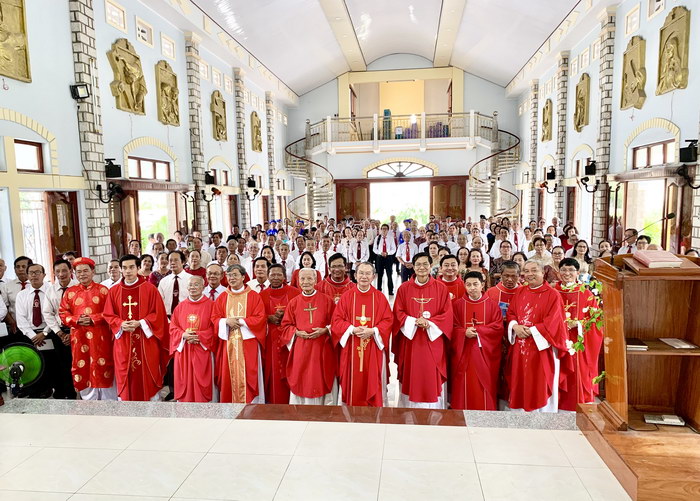
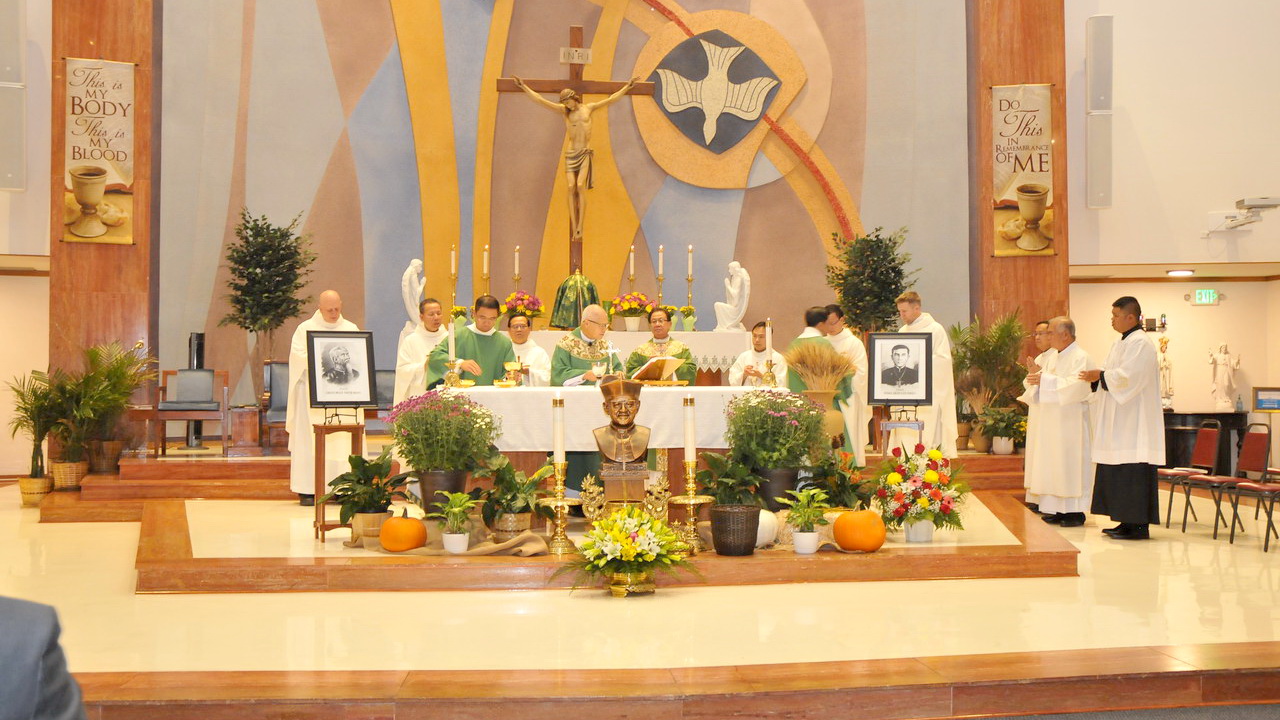
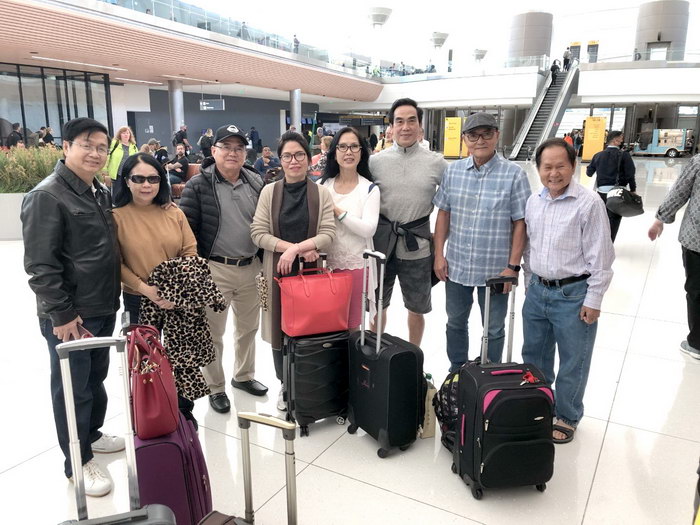
![Nhật ký Ngày Về 50 Năm Hồng Ân HT72-73 [4]](/uploads/news/2022_08/giao-xu-trung-quan_9.webp)
![Nhật ký Ngày Về 50 Năm Hồng Ân HT72-73 [3]](/uploads/news/2022_07/ngoc-khanh-ngan-khanh-linh-muc_4.jpg)



